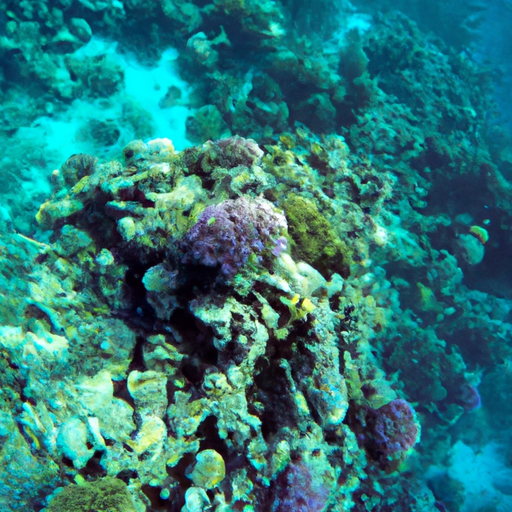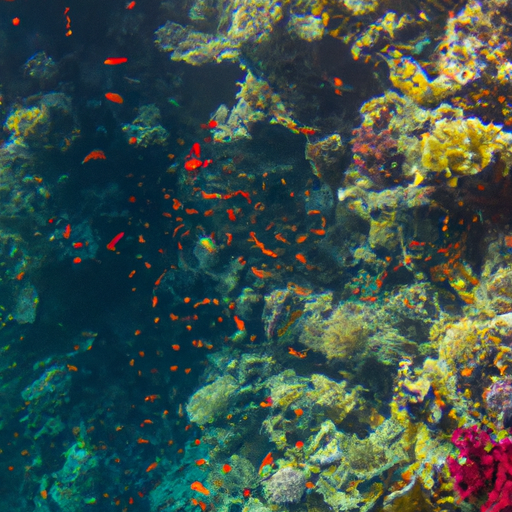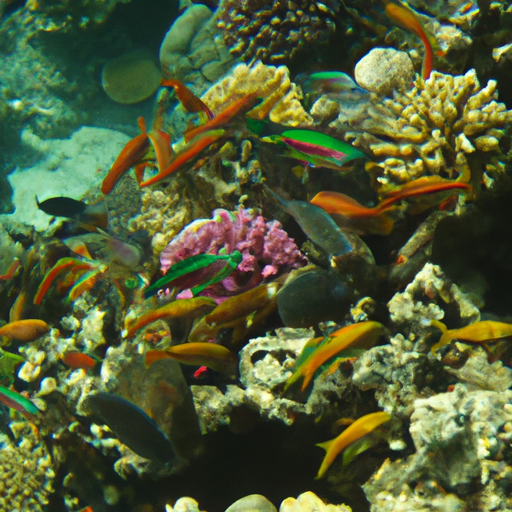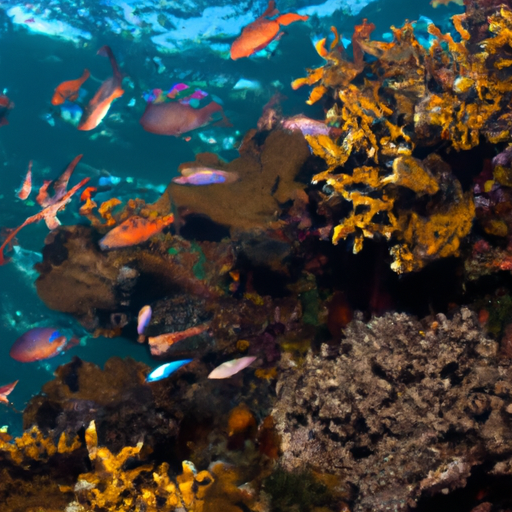
The Significance of Marine Conservation: Preserving the Diversity and Fragility of our Oceans
Marine conservation plays a crucial role in protecting our oceans and its creatures, and it holds immense significance in preserving the diversity and fragility of marine ecosystems. The importance of marine conservation cannot be overstated, as our oceans cover more than 70% of the Earth’s surface and are home to a staggering array of life forms.
One of the key reasons why marine conservation is so important is because it helps to safeguard the delicate balance of marine ecosystems. These ecosystems are complex and interconnected, with each species playing a unique role in maintaining the overall health and productivity of the ocean. When one species is lost or faces decline, it can have far-reaching impacts on the entire ecosystem.
Marine conservation also helps to protect endangered species and preserve biodiversity. Many marine creatures, such as whales, turtles, and coral reefs, are under threat due to human activities like overfishing, pollution, and habitat destruction. By establishing marine protected areas and implementing sustainable fishing practices, we can give these vulnerable species a fighting chance to survive and thrive.
Furthermore, healthy marine ecosystems offer a wide range of benefits to humanity. Oceans serve as a source of food, livelihoods, and recreational activities for millions of people around the world. They also act as a major carbon sink, absorbing a significant amount of the carbon dioxide emitted into the atmosphere and helping to mitigate climate change. By conserving our oceans, we are safeguarding these essential ecosystem services that we depend upon.
Marine conservation efforts rely on collaboration between governments, NGOs, scientists, and local communities. Through research, monitoring, and education, we can better understand the threats facing our oceans and develop effective conservation strategies. Additionally, raising awareness about the importance of marine conservation is key to garnering public support and encouraging individuals to make sustainable choices in their daily lives.
In conclusion, marine conservation is of paramount importance in protecting our oceans and their inhabitants. By preserving the diversity and fragility of marine ecosystems, we ensure the continued provision of ecosystem services, while also safeguarding the well-being of countless species. Only through concerted efforts to conserve and sustainably manage our oceans can we secure a healthy and prosperous future for both marine life and humanity.
The Impact of Human Activities on Marine Ecosystems and the Urgency of Conservation Measures
The Importance of Marine Conservation: Protecting our Oceans and its Creatures
Marine ecosystems are crucial for the well-being of our planet, and the importance of marine conservation cannot be overstated. Oceans cover over 70% of the Earth’s surface and contain a vast array of species, many of which are still undiscovered. These ecosystems provide numerous benefits to humanity, including climate regulation, food resources, and even potential sources of medicine.
However, human activities have had a profound impact on marine ecosystems, leading to habitat destruction, pollution, overfishing, and climate change. These activities threaten the delicate balance of marine ecosystems and the survival of countless species.
One of the key reasons why marine conservation is critical is the incredible biodiversity found in marine environments. Oceans are home to an estimated 80% of all living organisms on Earth, and countless species are interdependent, forming complex food webs and ecological relationships. Protecting these ecosystems ensures the preservation of biodiversity and the stability of entire ecosystems.
Furthermore, marine conservation efforts are essential for the livelihoods of millions of people who rely on the ocean for their sustenance and income. Coastal communities around the world depend on fishing and other marine resources for food security and economic development. By conserving marine ecosystems, we can ensure the sustainable use of these resources and maintain the well-being of these communities.
Marine conservation also plays a crucial role in mitigating the impacts of climate change. Oceans absorb a significant amount of carbon dioxide from the atmosphere, helping to regulate global temperatures. Additionally, marine ecosystems like coral reefs and mangroves act as natural buffers against storms and tsunamis, protecting coastal areas from the devastating effects of extreme weather events.
Given the urgent need to protect our oceans and their creatures, conservation measures are of paramount importance. These measures include the establishment of marine protected areas, sustainable fishing practices, reduction of plastic pollution, and the promotion of renewable energy sources. Education and awareness initiatives are also crucial in fostering a sense of responsibility and encouraging the public to take action.
In conclusion, the importance of marine conservation cannot be overstated. The oceans are home to incredible biodiversity and provide essential benefits to both nature and humanity. By taking urgent and concerted action to protect marine ecosystems, we can ensure the long-term sustainability of our planet and the well-being of future generations.
Promoting Sustainable Fisheries and Responsible Aquaculture for a Healthy Ocean Environment
Marine conservation plays a critical role in promoting sustainable fisheries and responsible aquaculture for a healthy ocean environment. With the increasing human activities threatening the delicate balance of marine ecosystems, it is more important than ever to take action to protect our oceans and the creatures that call them home.
One of the key reasons why marine conservation is of utmost importance is the incredible biodiversity found in our oceans. They are home to millions of species, many of which are yet to be discovered. These marine organisms not only contribute to the overall health of the ocean but also provide significant ecological, economic, and cultural benefits to humans.
Conserving marine habitats and protecting the species that inhabit them is crucial for maintaining the delicate equilibrium of our oceans. Many of these species, such as coral reefs and seagrasses, serve as nurseries and feeding grounds for countless marine organisms, including commercially important fish species. By safeguarding these habitats, we can ensure the long-term sustainability of fisheries and support the livelihoods of coastal communities that depend on them.
Furthermore, marine conservation helps to preserve the natural beauty and wonder of our oceans. Our marine ecosystems are renowned for their breathtaking coral reefs, vibrant fish populations, and majestic marine mammals like dolphins and whales. By protecting these habitats, we can continue to enjoy their splendor and share their marvel with future generations.
Another important reason to prioritize marine conservation is the role of oceans in mitigating climate change. Healthy oceans play a crucial role in absorbing carbon dioxide from the atmosphere, acting as a natural carbon sink. By protecting and restoring marine habitats, we can enhance their capacity to capture and store carbon, thus helping to combat climate change.
To achieve effective marine conservation, it is essential to establish and enforce marine protected areas (MPAs) and other conservation measures. MPAs act as sanctuaries for marine life, providing a safe haven where ecosystems can thrive and recover. Additionally, implementing sustainable fishing practices and promoting responsible aquaculture can help reduce the negative impacts of fishing activities on marine biodiversity.
In conclusion, marine conservation is of paramount importance for promoting sustainable fisheries and responsible aquaculture. By protecting marine habitats, preserving biodiversity, and mitigating climate change, we can ensure a healthy ocean environment for future generations. It is crucial that we all come together to support and prioritize marine conservation efforts to safeguard the wonders of our oceans and the creatures that depend on them.
Collaboration and Innovation in Marine Conservation: Working Together to Safeguard our Oceans for Future Generations
The importance of marine conservation cannot be overstated. Our oceans are home to a vast array of unique and delicate ecosystems, which support a rich biodiversity of marine plants and animals. They also play a crucial role in regulating the planet’s climate and providing essential resources for human societies.
Marine conservation aims to protect and preserve these valuable ecosystems and ensure the sustainable use of ocean resources. It involves the implementation of measures to mitigate threats such as overfishing, pollution, habitat destruction, and climate change. Through effective management and collaboration, we can safeguard our oceans and ensure their health and productivity for future generations.
The need for marine conservation is urgent. Overfishing has depleted fish stocks, threatening the livelihoods of millions who depend on fishing for their income and food security. The pollution of coastal areas and the open sea with plastic waste and other pollutants have devastating effects on marine life, with millions of marine animals dying each year due to ingestion or entanglement.
Furthermore, the destruction of critical habitats such as coral reefs and mangrove forests not only results in the loss of biodiversity but also compromises the resilience of coastal communities to natural disasters such as storms and tsunamis.
Collaboration is key in the effort to conserve our oceans. No single individual, organization, or government can address the complex challenges facing marine ecosystems alone. Cooperation and partnership among stakeholders from various sectors including governments, NGOs, scientists, local communities, and the private sector are essential to achieve effective conservation outcomes.
By working together, we can pool our resources, expertise, and knowledge to develop innovative and sustainable solutions. Collaborative research initiatives can help us better understand the functioning of marine ecosystems and identify the most effective conservation strategies. Sharing best practices and lessons learned across borders can improve the efficiency and effectiveness of conservation efforts.
Additionally, collaboration enables the development of comprehensive management plans that can ensure the equitable and sustainable use of ocean resources. By involving local communities in decision-making processes and empowering them to take ownership of conservation initiatives, we can foster a sense of stewardship and promote long-term commitment to protecting our oceans.
Ultimately, the importance of marine conservation lies in safeguarding the future of our oceans and their inhabitants. By working together and taking action now, we can preserve the beauty and biodiversity of our oceans for generations to come, ensuring their continued contribution to the well-being of our planet and all its inhabitants.



